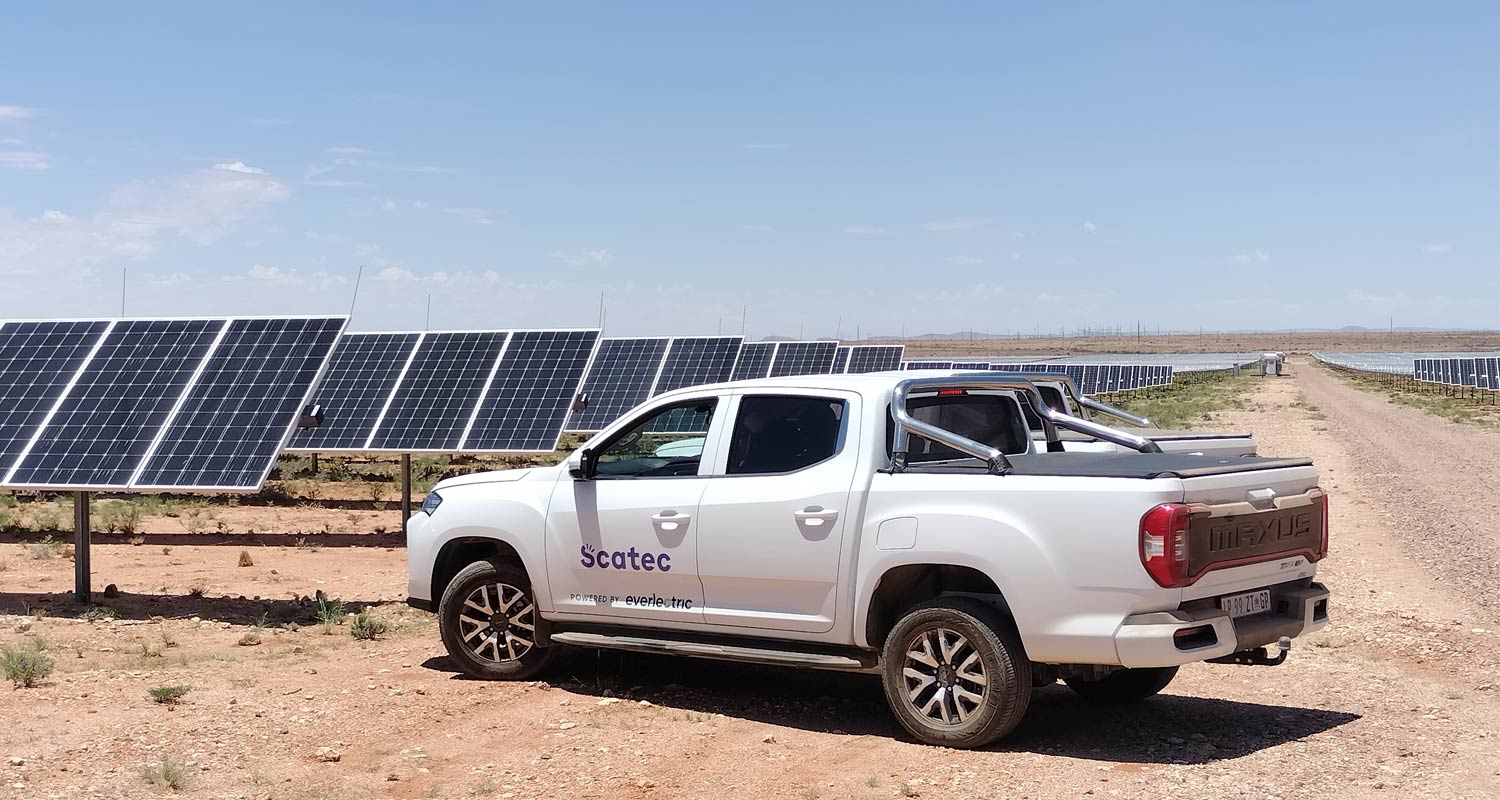Norwegian renewable energy systems specialist Scatec has piloted the use of industrial electric vehicles at its solar farms in the Northern Cape.
Responding to a query from TechCentral, Scatec said the three vehicles used in the pilot – two Maxus T90EV bakkies and a Scatec eDeliver panel van, supplied by Everlectric – are charged at the solar farms as operational staff perform their duties during the day and charged using grid power when parked at night.
“Scatec is committed to achieving net-zero emissions across all our global operations by 2040,” said Sean McGibbon, supply chain manager for Scatec.
“This pilot, running in Kenhardt and Upington, is a key step towards that goal. We’re not only proving that electric mobility can work in challenging conditions; we’re also gaining valuable local insights that will help us build more viable and cost-effective solutions than fossil fuel alternatives.”
The EV pilot project forms part of a series of net-zero initiatives implemented by the company to reduce emissions across its own operations and supply chain. The two sites where the project was piloted are the Kenhardt Solar Power Plant, a 540MW facility complemented by 225MW/1.14GWh of battery storage; and the 258 MW Upington Solar Cluster. The sites are used to supply Eskom with renewable energy for the national grid.
The EVs are used to support day-to-day operations, including maintenance and repair, in the same way traditional internal combustion engines do. Although the cost of operating electric vehicles is lower than that of their traditional counterparts, EVs are still more expensive to purchase. Scatec has an added advantage in that their facility produces electricity, making the additional cost of running the EV on site marginal.
EV as a service
To address the cost factor, Everlectric, Scatec’s partner in the project, created an “EV-as-a-service” model, giving its customers the ability to avoid high upfront costs by subscribing to the vehicles. The service bundles vehicle leasing, maintenance, fleet management and charging infrastructure into a single package.
According to Ndia Magadagela, co-founder and CEO of Everlectric, the company prioritises panel vans and commercial EVs with higher ground clearance and reinforced suspension.
Read: South Africa could still be a power player in EV manufacturing
“Current estimates show that EVs are approximately 15-30% more expensive than their ICE (internal combustion engine) equivalents, but we are seeing the market mature and prices dropping. The project aligns with a growing global trend where industrial sectors are embracing electric mobility. This shift is being driven by a combination of factors, including the need to meet national climate goals, the desire for energy independence and the increasing availability of affordable, robust EV models,” said Scatec.
“In South Africa, government policies like the EV white paper and its associated tax incentives are further accelerating this transition by promoting local EV infrastructure development.”

Released in December 2023, the white paper outlines a course for transition the automotive industry from traditional ICE to “a dual platform that includes EVs” by 2035. The white paper’s ambitions are related to both the production and supply side of the transport ecosystem. Other than driving EV adoption in the industrial sector, the white paper’s other goals include the development of a local battery production value chain.
“The compelling reasons behind this transition are numerous. Foremost is the urgent need to reduce greenhouse gas emissions and combat climate change. Additionally, we recognise the pivotal role the automotive industry plays in South Africa’s economy as a major employer and a driver of economic growth. Focusing on light motor vehicles underscores their ubiquity and contribution to emissions,” said the white paper. – © 2025 NewsCentral Media
Get breaking news from TechCentral on WhatsApp. Sign up here.
Don’t miss:
Every electric car you can buy in South Africa right now – with pricing



